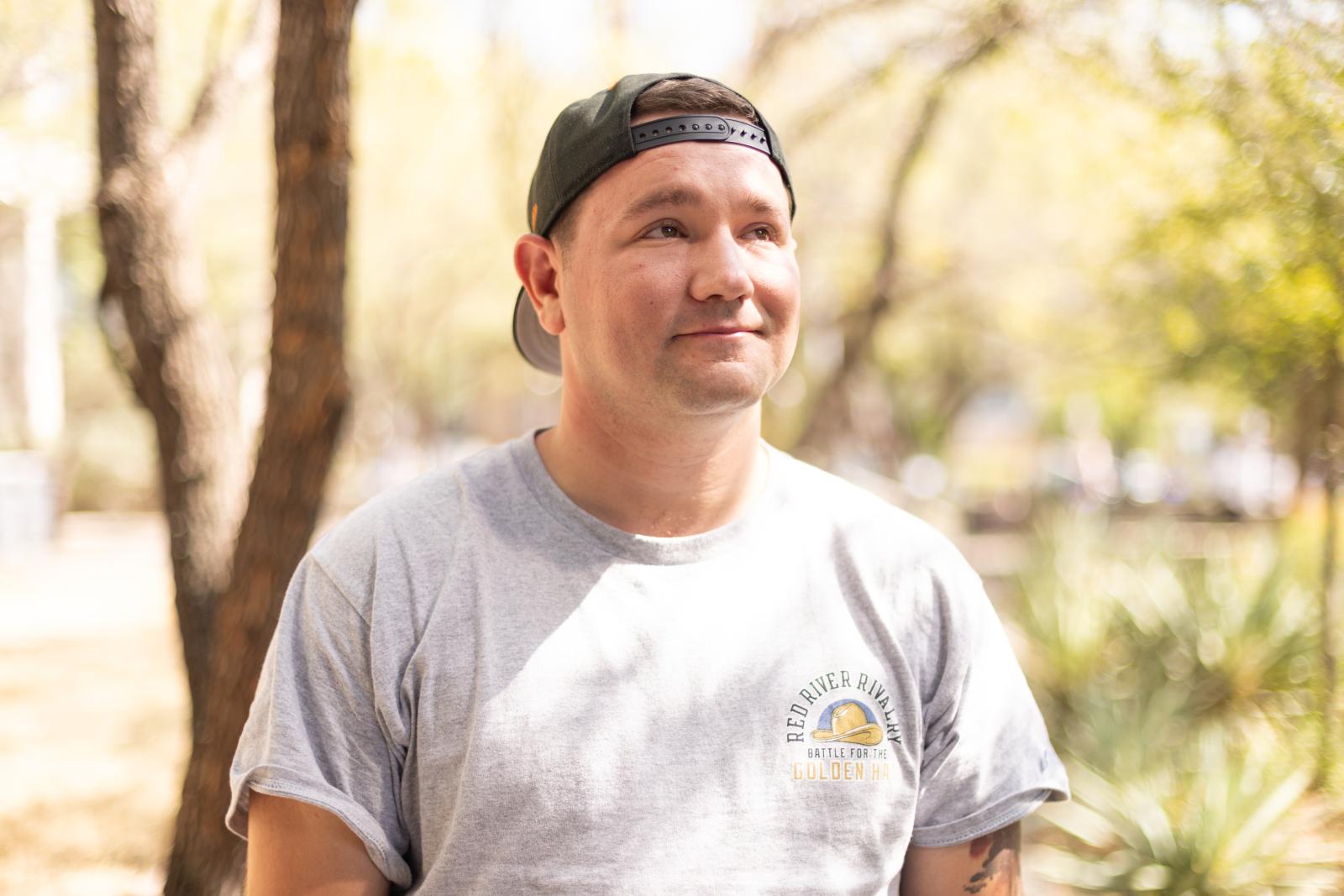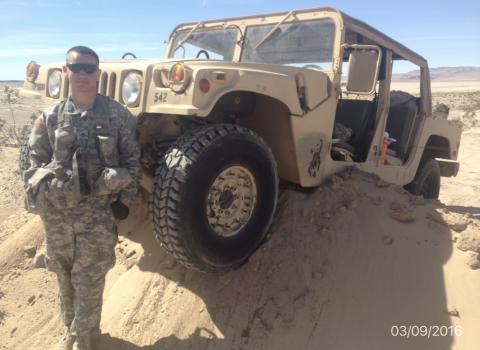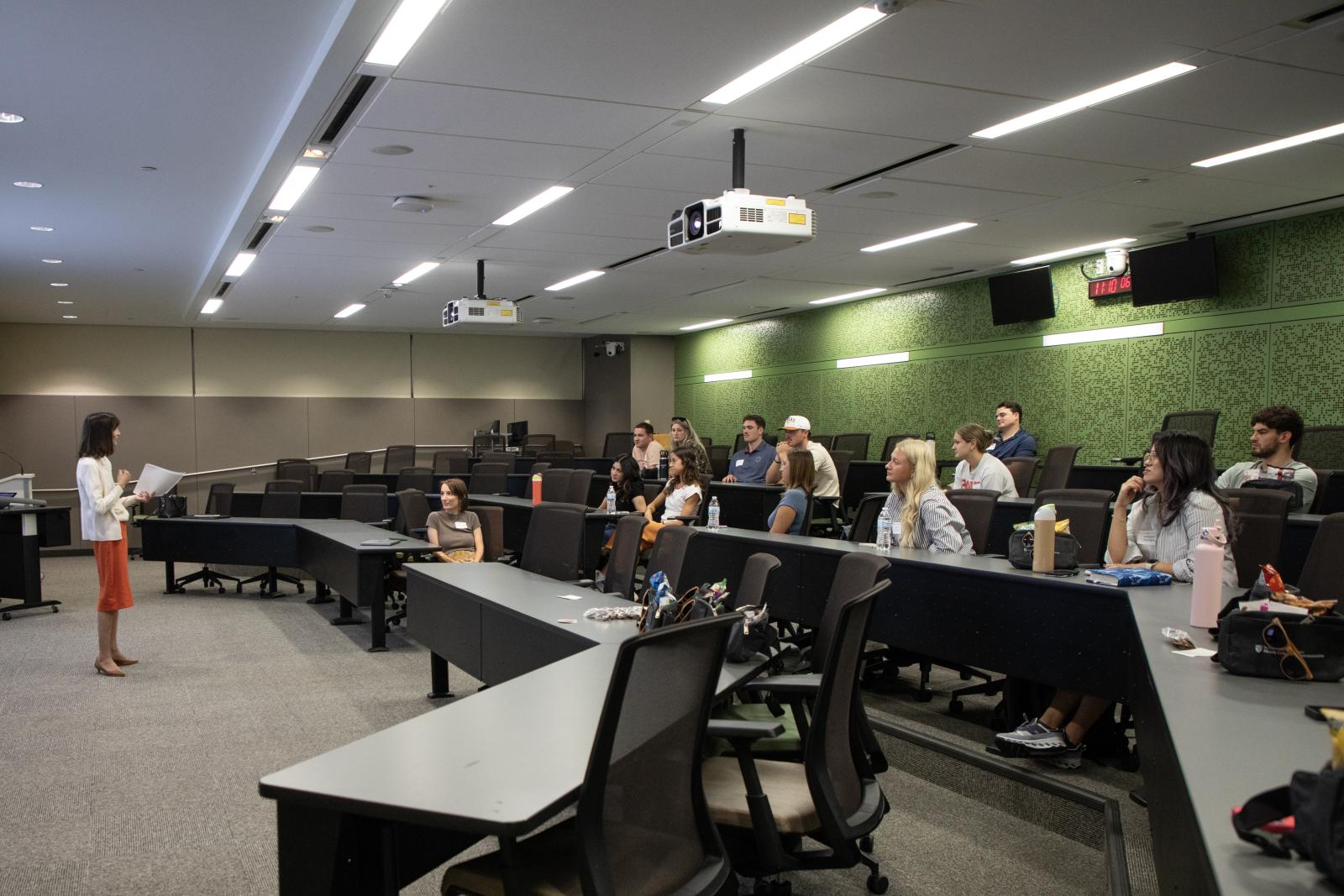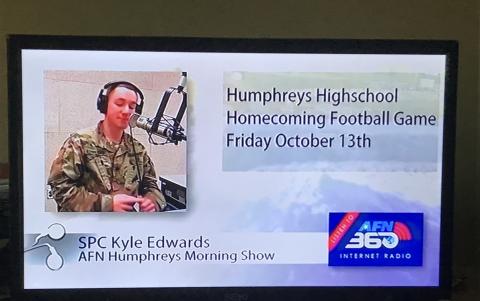Above and Beyond

When Kyle Edwards was discharged from the military, he wasn’t sure where life would take him next.
“I got out of the Army in 2020, right in the middle of Covid,” Edwards said. “I joined as a 17-year-old, so I didn’t know a lot about life outside the military. Eventually, I found a job in Eugene, Oregon, as a TV producer but I wanted to go back to school. Texas was my dream school, but I didn’t get in for my undergrad.”

After two years at the University of Oregon, and with two years left on his GI bill, he decided to try again at The University of Texas, but this time for graduate school.
“It worked out perfectly,” he said.
Edwards enrolled in Moody College of Communication’s Master’s in Strategic Communication program, focusing on certificates in strategic communication and sports communication.
Moody’s Master’s in Strategic Communication program is now in its fourth year and is made up of three graduate certifications: strategic communication, sports communication and communication and leadership. Students can choose how they want to combine those certificates to achieve their personal and professional goals.
“The program is very intentionally built,” said Christie Hodge, director of graduate programs at Moody College. “We have these specialties, but all the classes are taught with solid communication principles that you can apply to many different careers.”
Hodge says that the program allows for flexibility and that an undergraduate degree in communication isn’t a prerequisite. She says the program is often attractive to veterans because they typically have a very solid idea of how they want to use their education.
“They are very disciplined students,” she says. “They bring such a great presence into the classroom and often have such a different perspective as opposed to someone who’s straight out of their undergraduate program. It’s a joy to be part of helping them use the benefits they earned during their time in the military.”
Michelle Lavergne, also an Army veteran, enrolled in the program after earning her Master’s in Journalism and Media from Moody in May 2025. She’s focusing on certificates in communication and leadership and strategic communication.
“I’ve always been fascinated by mass communication, the way messages move through society and shape our understanding of the world,” Lavergne said. “What excites me most is watching this field transform in real time. Just as journalism has been revolutionized by digital platforms and social media, mass communication continues to reinvent itself with each technological leap.”
She says that when she first discovered the program, she was immediately drawn to its required courses, including “Crisis Communication,” Resisting Stereotyping and Prejudice” and “Managing Change through Communication.”

“These courses address the real challenges organizations face every day, and I see them as essential building blocks for strengthening my skills in corporate communication,” Lavergne said.
Both Lavergne and Edwards are looking forward to expanding their horizons in communications with the help of the master’s program.
“Before joining the Army, I worked in both journalism and corporate communication, two fields linked by my passion for storytelling,” Lavergne said. “That passion never faded during my military service; if anything, it deepened my appreciation for clear, purposeful communication. Now I'm ready to return to both fields, combining the storytelling skills I've honed with the leadership and perspective my new life experiences have taught me.”
Edwards says that though his entire civilian career thus far has been in the media productions landscape, he appreciates the applicable, wide-ranging skills the master’s program is giving him.

“I want to become a master of everything media communications-related so you could drop me into any organization, company or team, and I could do it,” he said. "Yes, the dream is still working in a production role for films, television or sports teams, but I like the flexibility of being able to say that with this degree, I can do whatever media or communications job you need me to.”
When Edwards isn’t in class, he’s helping other veteran students on campus in UT’s Veteran and Military Affiliated Services. Edwards says that many veterans, himself included, often find the transition from military to civilian life difficult and many have a tough time figuring out how to navigate the “real world,” so services like these help students find their new paths.
“Start early,” he said. “Start learning things from your transition team, spend time looking up all the benefits the military offers from education, to healthcare, to job placement. Talk to friends and family. Use all your resources. Find vet groups and ask their advice on how to be a regular human again. You have options. Apply to jobs or, even if you don’t think school is for you, still apply, you don’t have to go if you don’t want to. Build your own safety net.”
